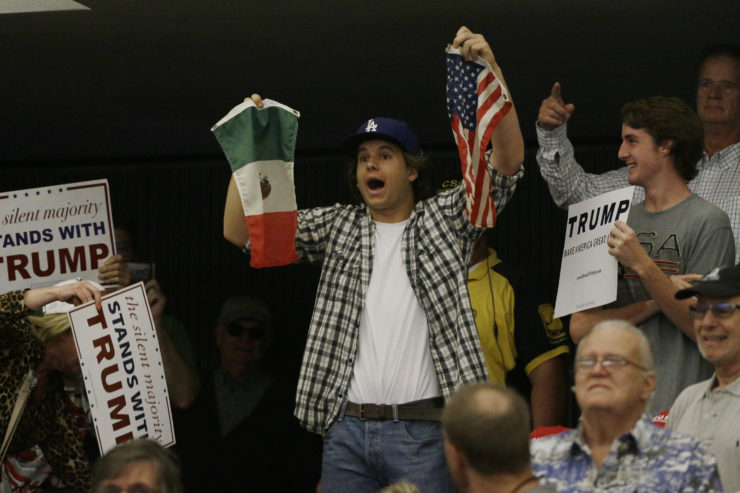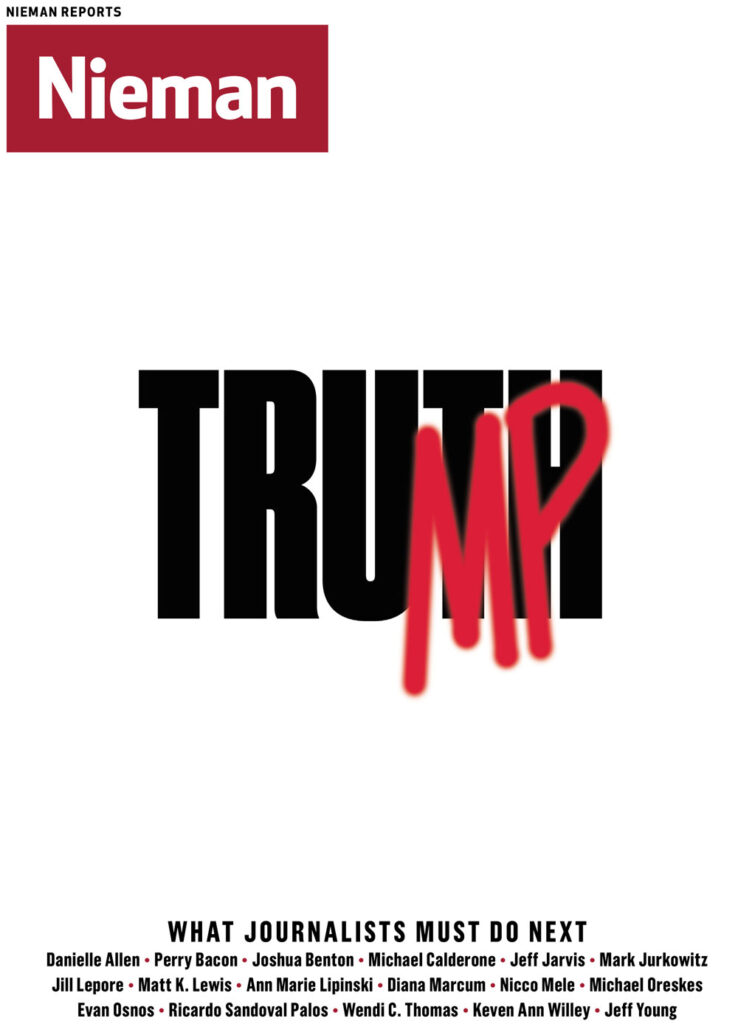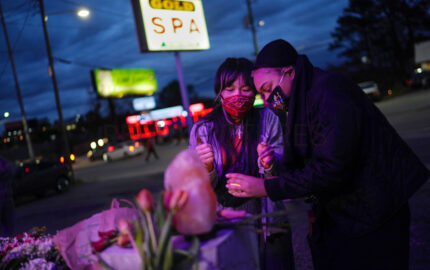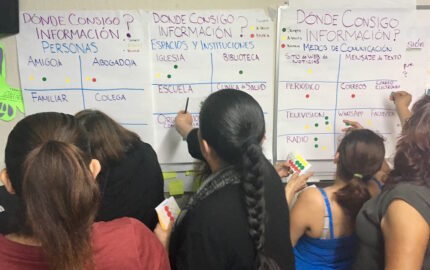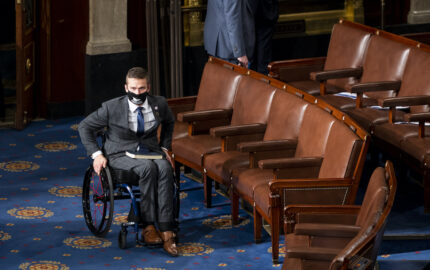I watched election-night coverage on television with acquaintances from Europe, who seemed flummoxed by what was unfolding on the screen. I spent a lot of time explaining the Electoral College and unpacking why I thought that Donald Trump was getting enough votes, in the right places, to win the election.
Early on, it was a fun night. We laughed as I, a Mexican-American, gladly accepted the moniker, Bad Hombre. Trump had set a tone on the first day of his presidential campaign, calling out Mexican immigrants as rapists and drug dealers. And, by the end of the campaign, he’d cemented his hard stance, asserting there were some “bad hombres” out among the population of Mexican immigrants. It became a bitter joke among Latino men. But as the CNN map turned redder and redder that night, the laughs disappeared. It appeared that many voters had taken Trump’s hyperbole as gospel.
This brought me to a conundrum: As a proud, professional journalist, I am politically neutral. I’ve worked to hold the feet of politicians of all stripes to the fire. But on election night I began to wonder: How do I remain the neutral observer when the president-elect and his advisers have used openly racist language about Mexican immigrants, people like me?
He may call himself simply a nationalist, but Trump adviser Steve Bannon has made money and fame hawking white nationalist notions on the Breitbart website and his radio program. He’s praised Jason Richwine, formerly of the Heritage Foundation, as “one of the smartest brains out there in demographics, demography, this whole issue of immigration, what it means to this country.” Richwine has argued that Hispanic immigrants “do not have the same level of cognitive ability as natives.” He echoes eugenics theory, which ranks me and mine well down the ladder of able races.
Add in talk during the campaign of walls and registries that would shield us from people demonized as dangerous and running amok. The result: an environment that’s deeply unsettling to many journalists of color.
Which brings me to this.
I haven’t ever said this publicly, but even though I’ve accomplished a great deal, I’ve often felt like an outsider in mainstream journalism. Perhaps it’s my start in life as a barefoot kid on the dirt streets of Tijuana, in Mexico, or the fact that there are so few Latinos in the upper reaches of English-language media, despite our growing share of the U.S. population. I’d wanted to be a journalist from early on, starting a school newspaper in the sixth grade. But for me, scraping together money to go to a good state university was an achievement, especially after few teachers in high school expressed confidence in me.
Today, my bookshelves are dotted with major journalism awards. I was fortunate enough to work for a decade as a correspondent in my native Mexico, and I’ve held positions of authority in prominent newsrooms in print and public radio. But my climb in the business was accompanied by remarks like these:
“Now that we’ve hired you, we can make a normal hire.”
“Don’t we already have a Hispanic in the business section?”
Those words were from colleagues and supervisors, and they left me with a sense that my stay was transient—that for me and other journalists of color the margin for error was thinner and our roads to success much more serpentine.
That gut feeling had actually taken root when I was a kid, growing up near the border, south of San Diego. I’ll never forget that police officer who used to park in my neighborhood and often asked to see my ID as I walked to school.
But the most humiliating incident occurred just after I got my college degree. It was on a train from San Diego to Los Angeles. I was dressed in my one sport coat and button-down shirt, ready for lunch with an editor at a large daily newspaper. Back then, uniformed border agents routinely patrolled trains northbound from San Diego, looking for passengers who seemed to radiate “otherness.” I traded stares with the agent, and he demanded that I produce my ID and proof of status. I bit my lip against a smart-mouth retort and produced my California driver’s license and my green card. I was born in Mexico and was not yet a U.S. citizen.
I had believed my shiny new degree in journalism from California State University proved I belonged. Getting singled out by this agent instead made me feel shoved back in my place. He had asked no one else to produce an ID. The interaction reminded me that no preppy sport coat could completely cover my brown skin.
I know that many of my colleagues have never been compelled to produce ID for anything other than the right to buy a drink.
I reflect on the past as we consider a new challenge. It’s a special time that’s forcing us to redefine what it means to be a Latino and a professional journalist. I can only imagine the waves of fear, anger, and uncertainty that journalists who are Muslim or who are of Arab heritage are experiencing.
The optimist in me predicts we won’t witness mass deportations, with crowds of frightened people at the border and armed guards forcing them out. I don’t foresee enough politicians willing to enact official registries for Muslims. Yet there’s a disturbing level of public support for such measures, and the Trump transition team isn’t ruling them out.
We’ve seen wartime internment of Japanese-Americans. And my own American-born mother and her Mexican immigrant parents were coerced into leaving the U.S., from Denver, in a mass deportation during the Great Depression.
So what do I do as a Latino, and a journalist?
I’ll adhere to as high a professional standard as possible. I’ll report and write accurately, without favor for skin tone or political bent.
But I’ll also demand that as we head deeper into these changed times, I get the opportunity to speak up about editorial decisions. There has to be room to confront myths about people of different ethnicities as they emerge in policy debates. I’ll also ask colleagues to refrain from labeling me as biased when I point out that an alleged fact is a racist myth.
I fear that Team Trump’s coziness with advisers who consort with white nationalists will be treated as no more controversial than the president-elect’s positions on trade deals. But if we aggressively question authority over the next four years, I’ll feel like the industry has my back. Maybe then I’ll finally shake that nagging suspicion that I’ve not been shown the secret handshake of journalism.
